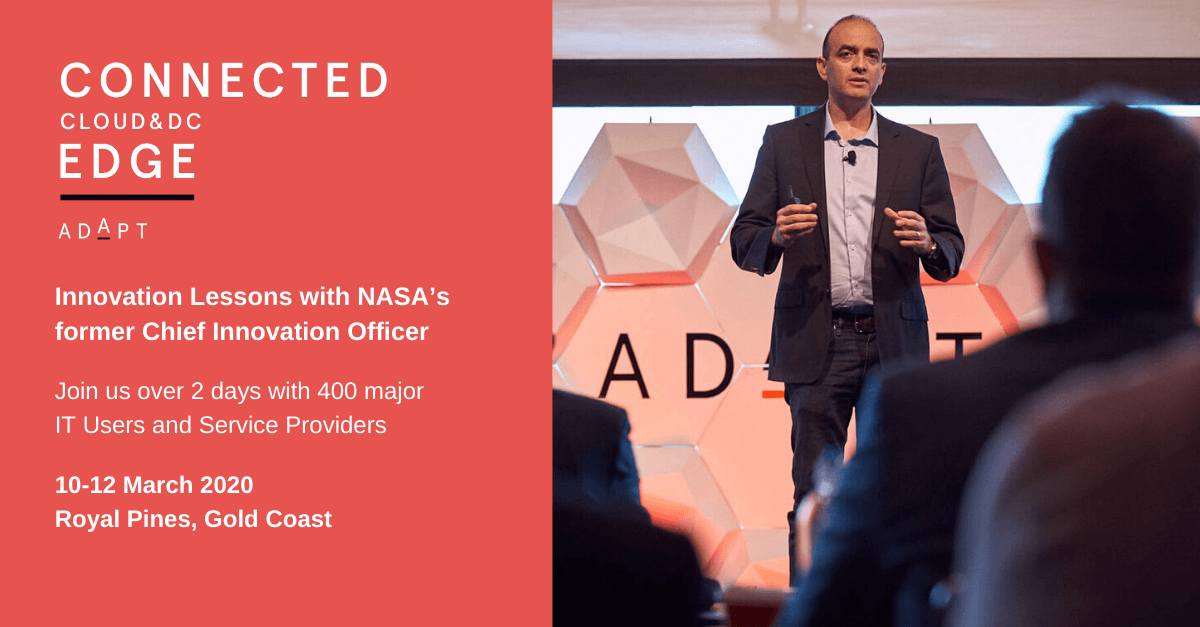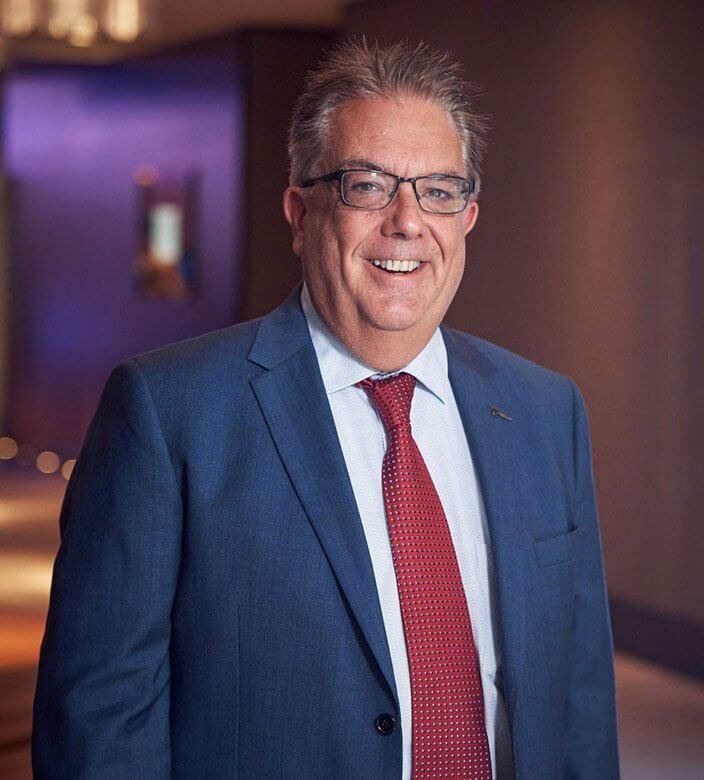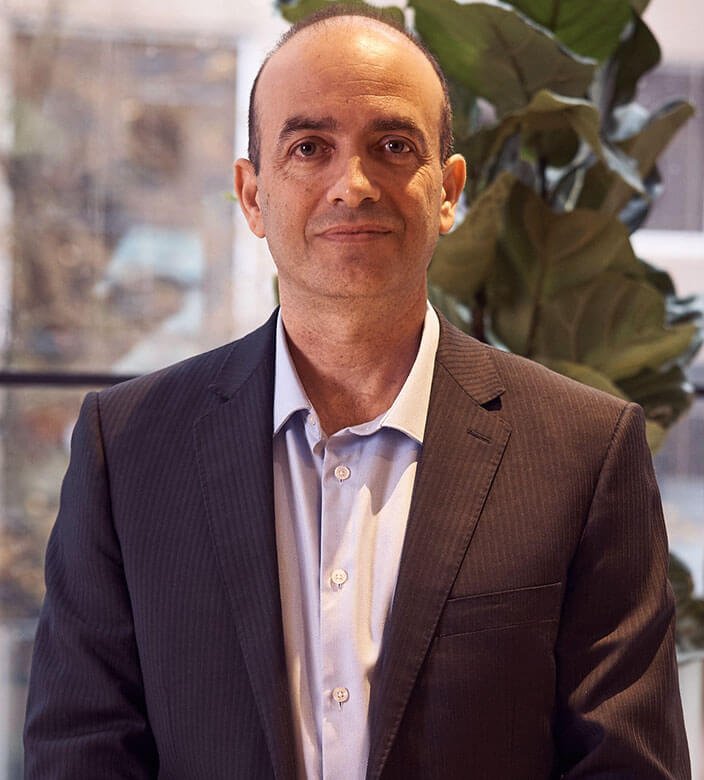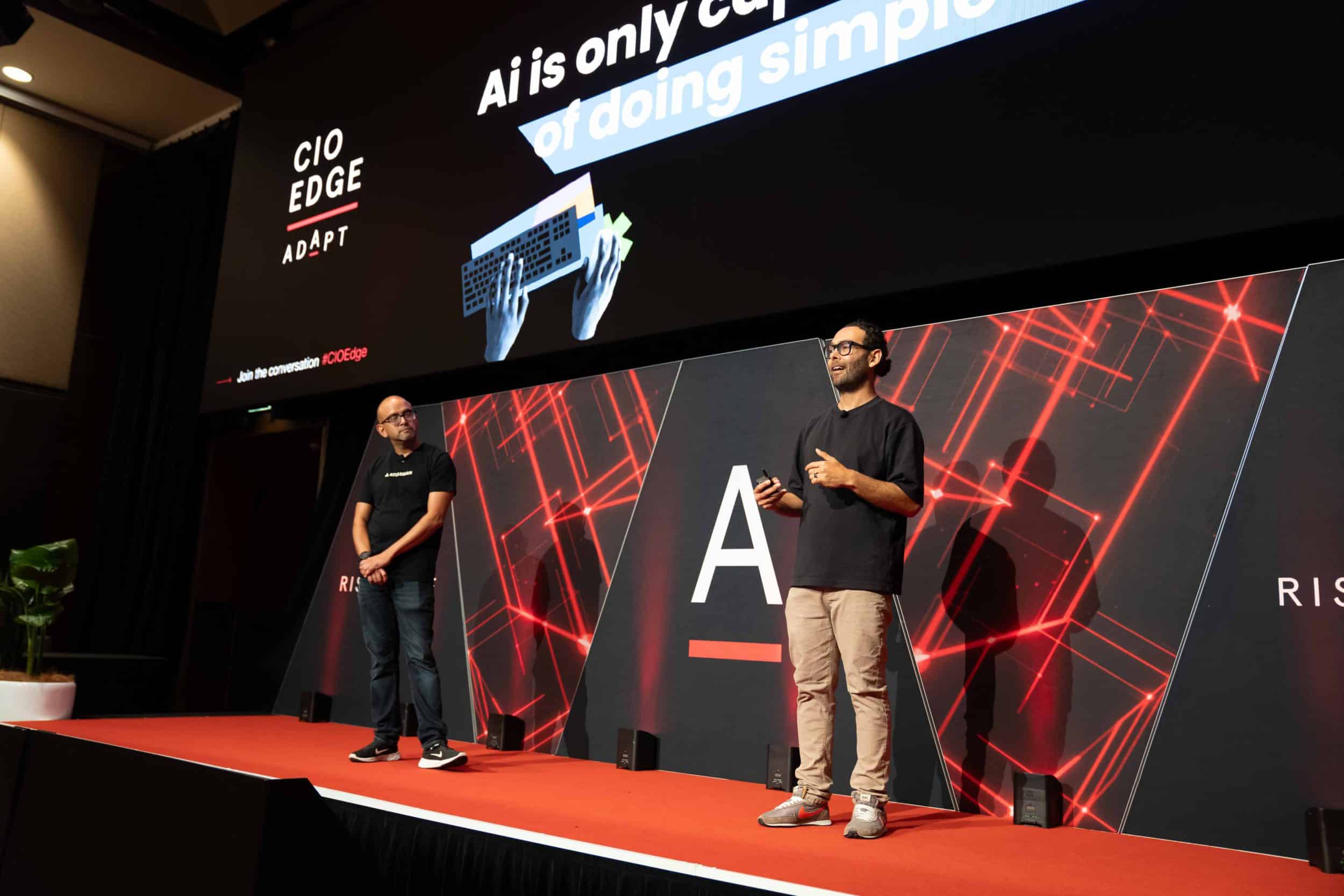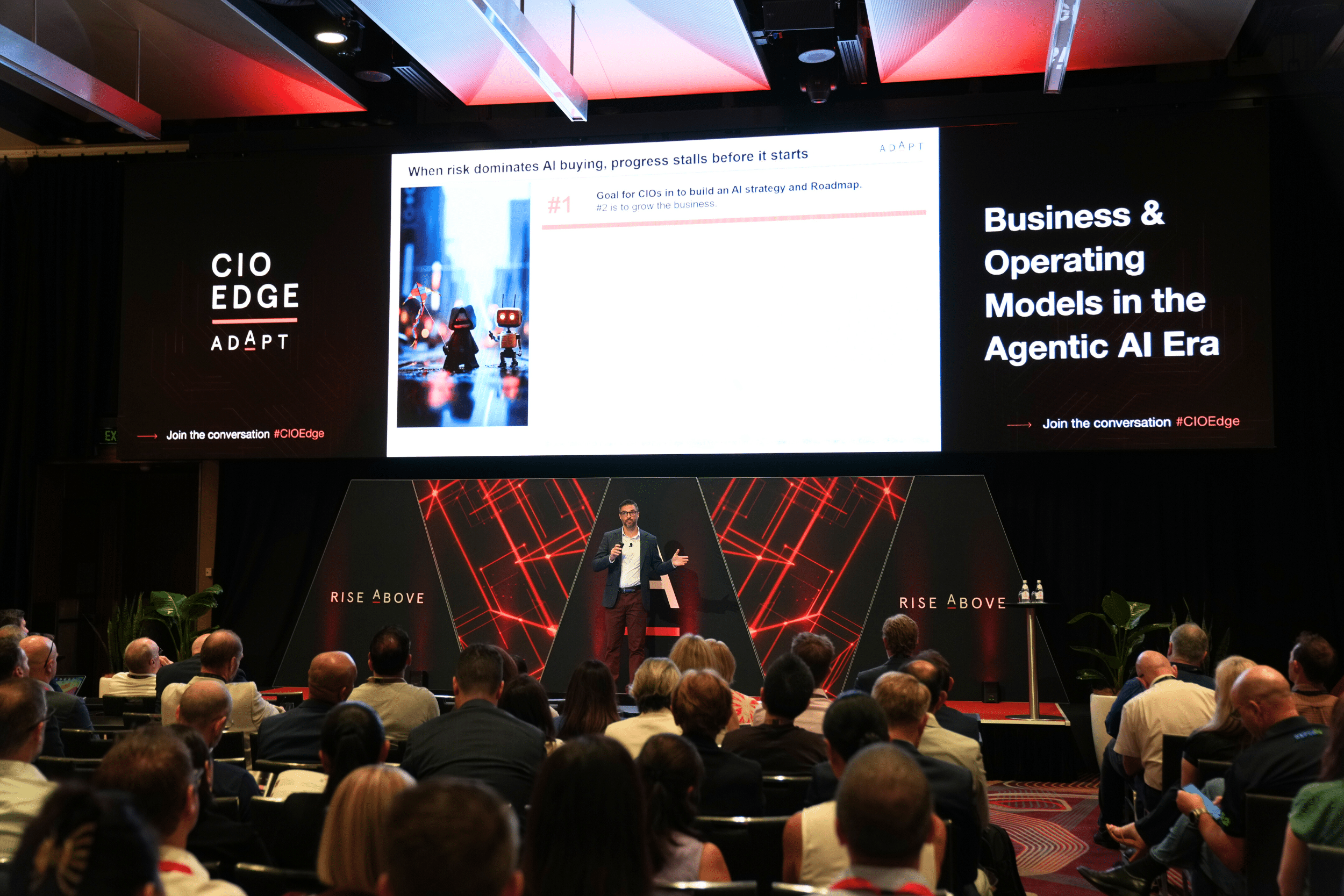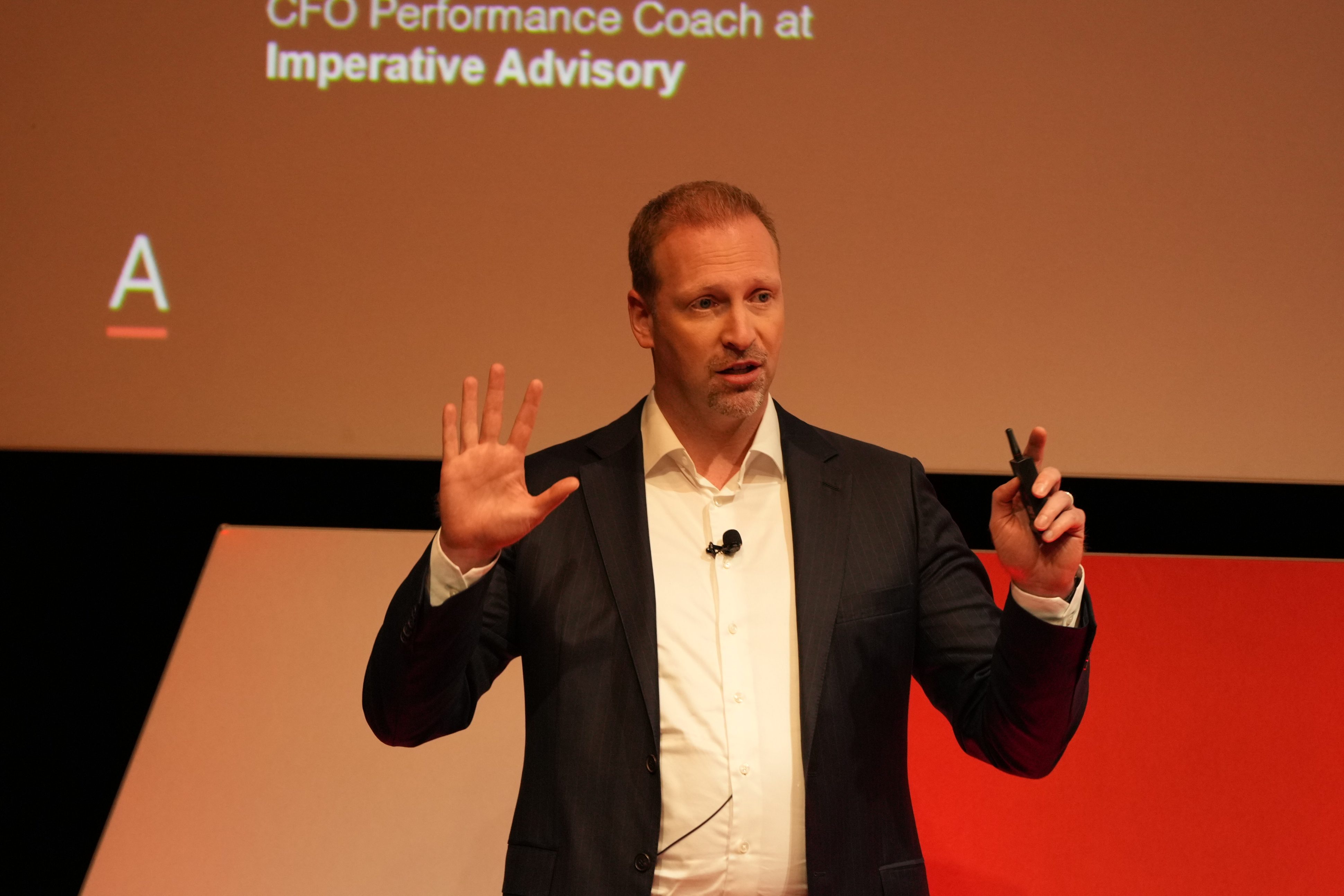The Autonomous Approach to Managing Sustainable Humanity
Omar Hatamleh discusses the sustainability of humanity, the role of AI and machine learning in automating tasks and focusing human intelligence in more meaningful work.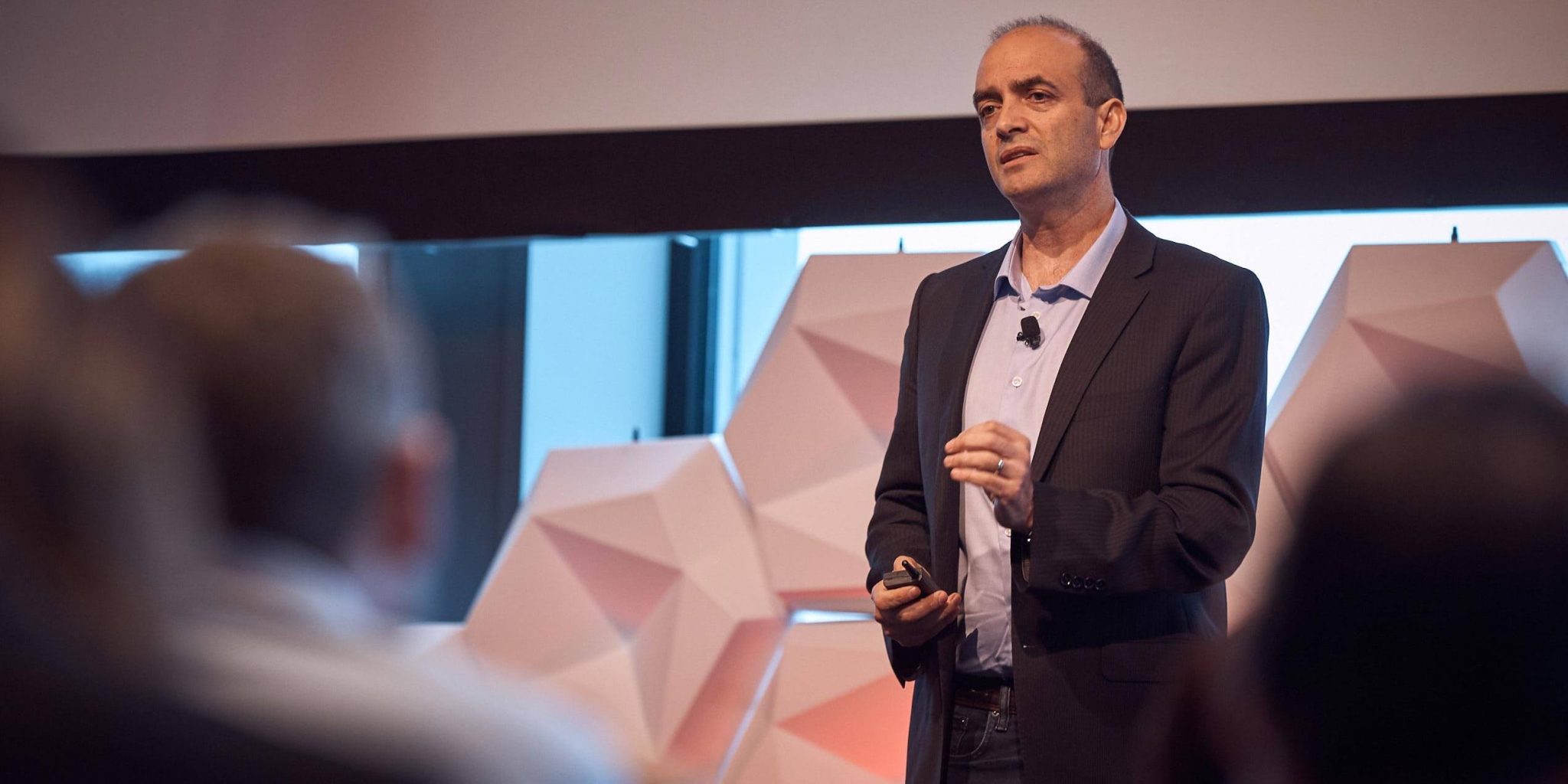
Omar Hatamleh is the Executive Director of the Space Studies Program. He was previously NASA’s Chief Innovation Officer and Deputy Chief Scientist, where he drove the organisation’s creative thinking to tackle moonshot challenges.
Omar Hatamleh discussed with ADAPT’s Director of Strategic Research Matt Boon the sustainability of humanity and the role of AI and machine learning in automating tasks and focusing human intelligence in more meaningful work.
Matt Boon:
Now shifting gears a little bit Omar, I want to talk about this concept of sustainable humanity if you like. So there’s a lot of talk about sustainability. Everybody here attending the Connected Edge event has been impacted by some degree from the unprecedented fires that we’ve had on most of the East Coast, Australia over the last couple of months. We’ve gone from half the country on fire to now a huge wave kind of underwater basically a couple of weeks later.
Sustainable is kind of top of mind and if you think about data centres and cloud, it’s a little bit of, I think, an increasing focus on “Okay, what are the power implications?, “What are the sustainability areas we need to think about and look at?” I think very top of mind with organisations right now, so if you think about this without getting into sort of talking about climate and so on. When we think about areas such as AI, which you’ve been talking about, how do you think AI, machine learning and some of the new approaches and tools will actually help us from a technology data centre and business point of view to take more of a proactive almost autonomous approach to how we manage sustainability?
Omar Hatamleh:
So, the cool thing about machine learning and algorithms is they can go through an incredible amount of data that typically to us seems unstructured and random and we need to find trends and assign value.
Data without valuable information is completely worthless.”
The cool thing about these algorithms is they’re starting to find trends and the data is actually becoming extremely useful for us. Look, for example, now it’s being used in agriculture and producing better crops for people. It could be used for predicting an outbreak of diseases before they happen. Looking at tens of thousands of parameters that could be used for weather and fire predictions.
Because the data is there. Sometimes it’s for us, as we are colossal in numbers, it’s a vast amount of data. It’s very difficult for us to articulate valuable information out of it. I think that’s where artificial intelligence is going to come and find these insights that for us are going to be very difficult, whether it’s agriculture or sustainability, disease spreading, or whether it’s weather patterns that are actually complex. I think we’re definitely going to have a lot of success moving forward with all these technologies.
Matt Boon:
Yeah, that’s good. Good point. Think about NASA controlling robotic missions in deep space, for example, and we spoke a little bit about autonomous and about autonomous driving systems and the changes they’re really going to bring. If you think about autonomous driving then also lots of other autonomous approaches to life and to business and so on. How close do you think we are to really live in this autonomous world? Driving is one example, but how close are we to truly realising that dream about driving and other areas do you think?
Omar Hatamleh:
Okay, That’s a very good question Matt and it’s very, very interesting because the way I see it actually it’s going to be in two phases.
So in one place, autonomy is going to work hand in hand with humans and helping them achieve their goals in a faster, better, more accurate and a much more reliable way.”
Then as we move along, I think there’s going to be more autonomy for this equipment and these machines because it becomes more mature, the computational capabilities become substantially higher. So it will be a phase. But I think in the next 5 to 10 years, even 15 years possibly, I think we’ll be working hand in hand to enable us to become, to get better successes. Look at radiology, for example, always having incredible success with using artificial intelligence and I’ve seen several studies in this past year and almost every single one was able to outperform the best radiologist from 5 to 10% and this is talking about very basic and arcade system, which is not that mature as compared to what’s going to happen the next 5, 10, 15 years.
I think that the first phase will be, like I said, working together and then moving forward, most of these jobs will be able to be performed and given away to autonomy and people can actually focus on things that actually need human brains like emotional intelligence, creativity, and doing things that machines cannot do for the next foreseeable future.
That’s where we’ll be moving forward. But I think autonomy is going to be something that has a big impact. There are a lot of jobs that need to be autonomous because it’s very boring. There is no value and if we can actually switch these routine jobs that are repetitive, I think humans can do something much more interesting. If you can actually find a way for them to do different things and let the machines do the repetitive, boring tasks, we can concentrate on the more exciting and challenging tasks that humans can do.
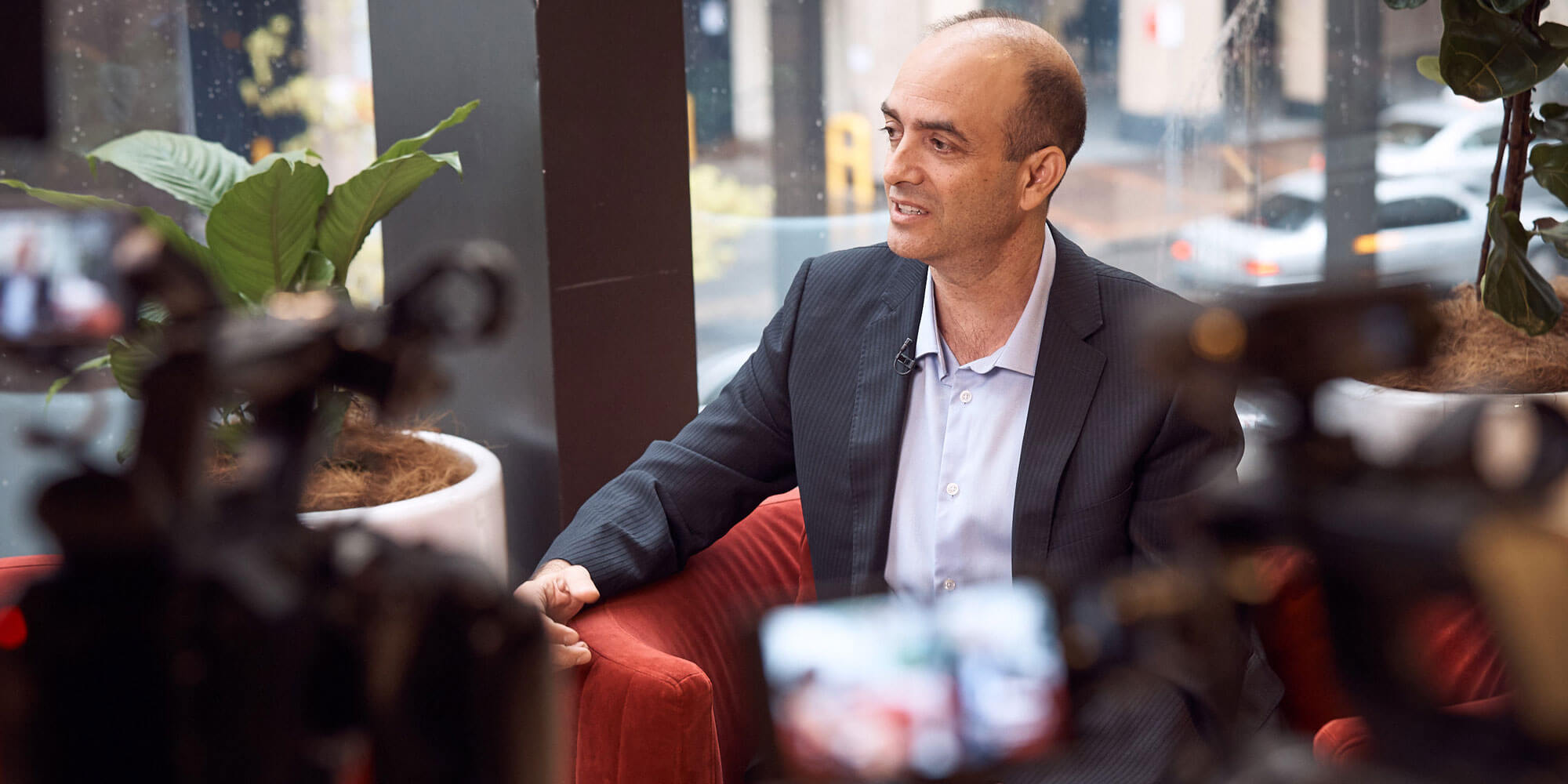
Matt Boon:
Nirvana is what we’ve always been looking for. So when you think about that a little bit more deeply, I know you’re talking about the need to analyse millions of photographs and so on as we think about AI and what the limitations for us getting there with this kind of computational power. For example, the advances in GPU have enabled us to start doing this. So do you think computational power can keep up with our expectations, do you think as we look at this move towards autonomous computing and so on?
Omar Hatamleh:
Yeah, that debate has been going on for a long, long time. Moore’s law kept reaching the limit, we find a new technology that actually keeps going and getting us in that capacity. I think the thing is we’re getting very close now in terms of the number of transistors and spacing. So we’re getting to the point where actually the electrons might even be interfering and the atoms so close to each other, that we’re going to start having issues.
I think the next natural kind of stepping forward will probably be quantum computers and people are talking about now even 3D ways of packing these transistors and CPUs.”
But I think quantum will definitely have something, it’s going to be very very disruptive and going to have to change so many aspects on so many different technologies and industries across the board.
Matt Boon:
Omar, what lessons can we learn from so much innovation and experimentation that we see? Do you think we, as humans, are getting smarter or are we just getting faster?
Omar Hatamleh:
It’s interesting, I think like anything else, as collectively as a species, I think we’re having more information, now imagine anybody in a developing country is going to pick up his phone and ask any question on the internet and find the solution to it. But at the same time, we’re disengaging from society.
People are starting to become less interactive as a community and changing sociology as a whole.”
A lot of people are also depending on electronic things as opposed to thinking for themselves. So it depends on the narrative. It’s actually both. It’s making us smarter and more knowledgeable at the same time, I think it’s impacting us as humanity in ways that probably are not that beneficial or not what we expected. So it’s both ways, actually. It’s got to be going both ways.
Matt Boon:
Okay. So we’re going to get faster and we get smarter at the same time. I look forward to that. All right. Fantastic. Omar it’s been lovely talking to you today. We’re really looking forward to hosting you in the fabulous Gold Coast with about 400 Connected Cloud and data centre professionals from across Australia and New Zealand, so we’ll look forward to seeing you there and speak to you soon Omar.
Omar Hatamleh is the Executive Director of the Space Studies Program at International Space University. He has led four annual Cross-Industry Innovation Summits in Houston. He was the Chief Innovation Officer, Engineering at NASA. In March, Omar will keynote at ADAPT’s Connected Cloud & DC Edge on NASA innovation lessons.

























